Bill Gates on coronavirus: 'The world needs more than breakthrough science'
Billionaire Bill Gates’ foundation donated an additional $1.6 billion to help develop vaccines for disease including COVID-19 on Thursday.
“To beat the COVID-19 pandemic, the world needs more than breakthrough science. It needs breakthrough generosity,” Bill Gates, co-chair of the Bill & Melinda Gates Foundation, said in a statement. “When COVID-19 vaccines are ready, this funding and global coordination will ensure that people all over the world will be able to access them.”
The billion-dollar commitment goes into a pool of around $7.4 billion in donations made by various groups — from governments to foundations like Gates’ — for the Global Alliance for Vaccines and Immunization (Gavi) to manufacture and deliver COVID-19 vaccines. The money is being raised as part of a virtual summit hosted by the United Kingdom on Thursday.
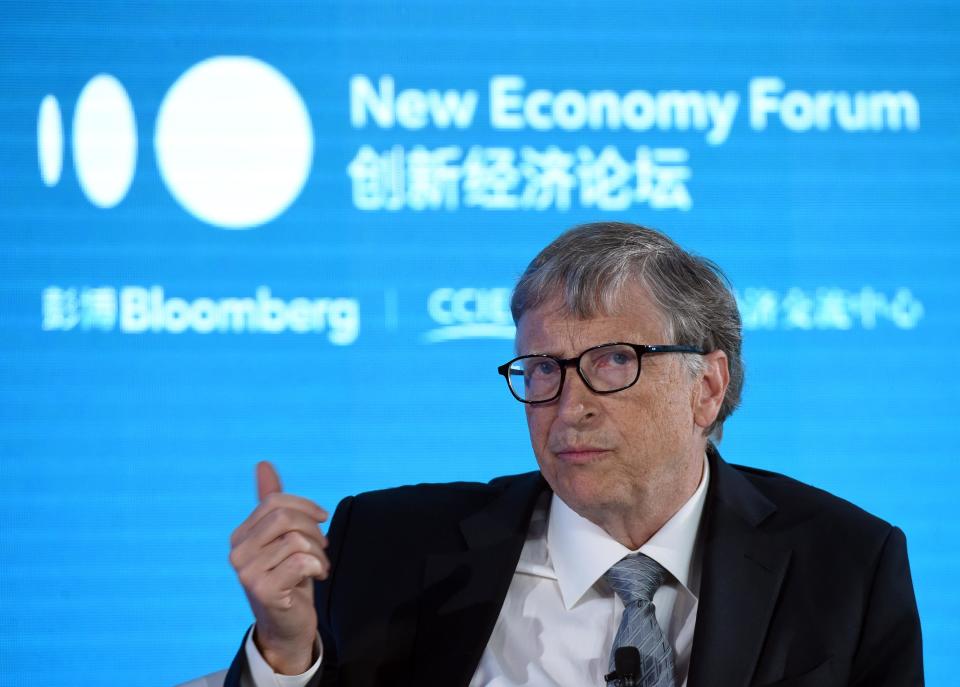
Gavi, formed in 2000, is partly funded by Bill and Melinda Gates and its mission is to develop and distribute vaccines in some of the world’s poorest countries for diseases such as HIV/AIDS and polio.
The five-year commitment by the Bill & Melinda Gates Foundation is separate from another $100 million it gave to Gavi to purchase COVID-19 vaccines for lower income countries.
“Right now we've got billions of people in lockdown because we don't have a vaccine or cure for COVID-19, and the devastating impact of the COVID-19 is a huge reminder of how vulnerable we are to disease,” Gates said on a call with reporters.
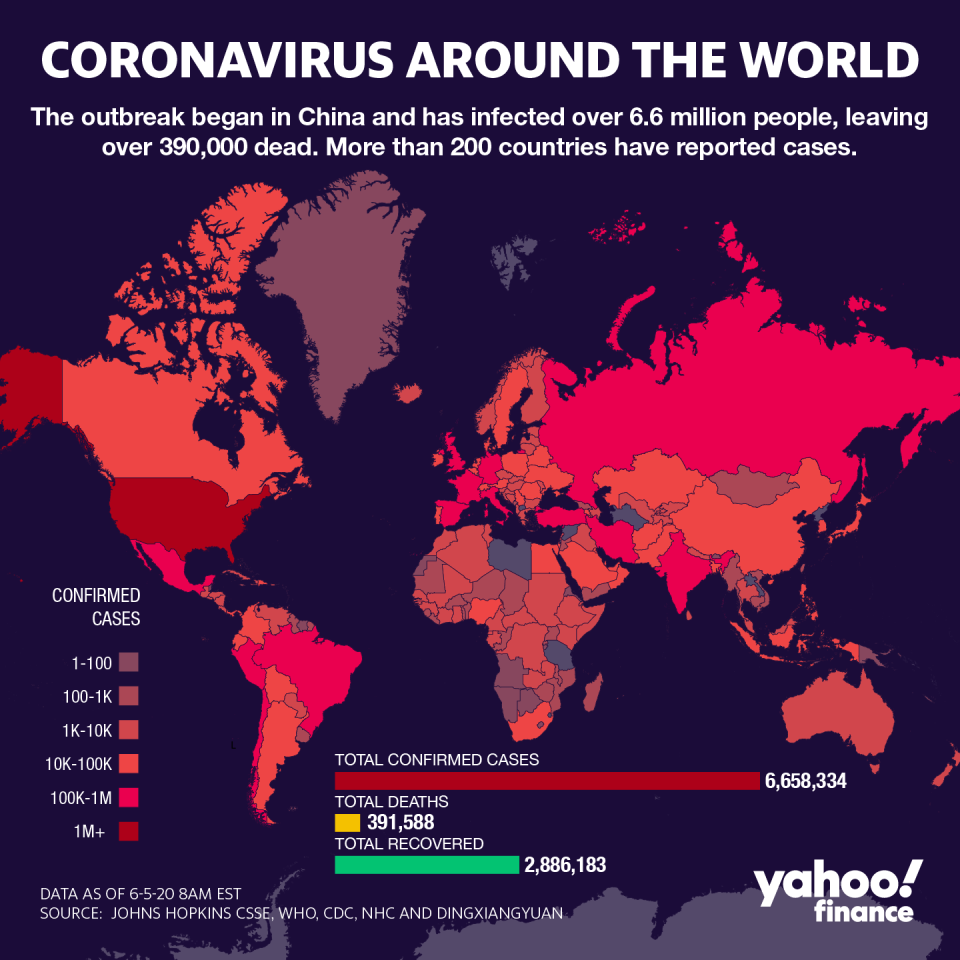
‘Disappointed’ in the U.S. terminating relationship with WHO
Gates said he was “disappointed” with President Trump's recent announcement in May that the U.S. is terminating its relationship with the World Health Organization.
"I'm disappointed that they're talking about pulling out, and I think we can resolve that eventually in a positive way,” said Gates. "I would encourage the United States to stay as a member of WHO and continue the support they provide.”
But questions remain about what, exactly, the termination means.
Referring to Congress' funding to WHO for polio eradication efforts, which is being spearheaded by the multilateral organization, Gates said that WHO is important for the work that Gavi was doing and that “we need to stay together because there will be future pandemics.”
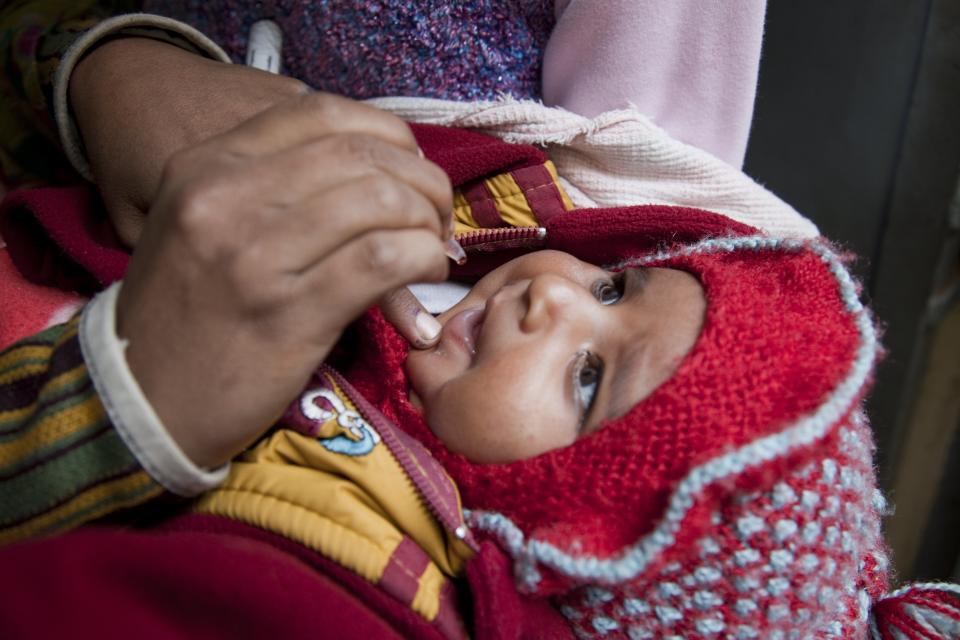
‘We need to fight what is now called vaccine nationalism’
The United Nations and then Red Cross have recently voiced concerns about the COVID-19 vaccine race. Richer countries are taking on huge financial risks to amp up production for their populations, which could leave poorer countries behind.
Termed "vaccine nationalism" by public health experts, the first country to create a COVID-19 vaccine would be at an advantage, as it puts it in a position to revive its economy and protect its population ahead of others.
"We need to fight what is now called vaccine nationalism," Emanuel Capobianco, head of health at the International Federation of Red Cross and Red Crescent Societies (IFRC), told the AFP.
Gates said that that situation can be prevented if companies can commit to scaling up so that poorer countries aren’t left behind, noting that pharmaceutical companies were on board with sharing resources. Gavi hopes to offer vaccines at inexpensive prices, Gates added, and the effort is supported by manufacturers.
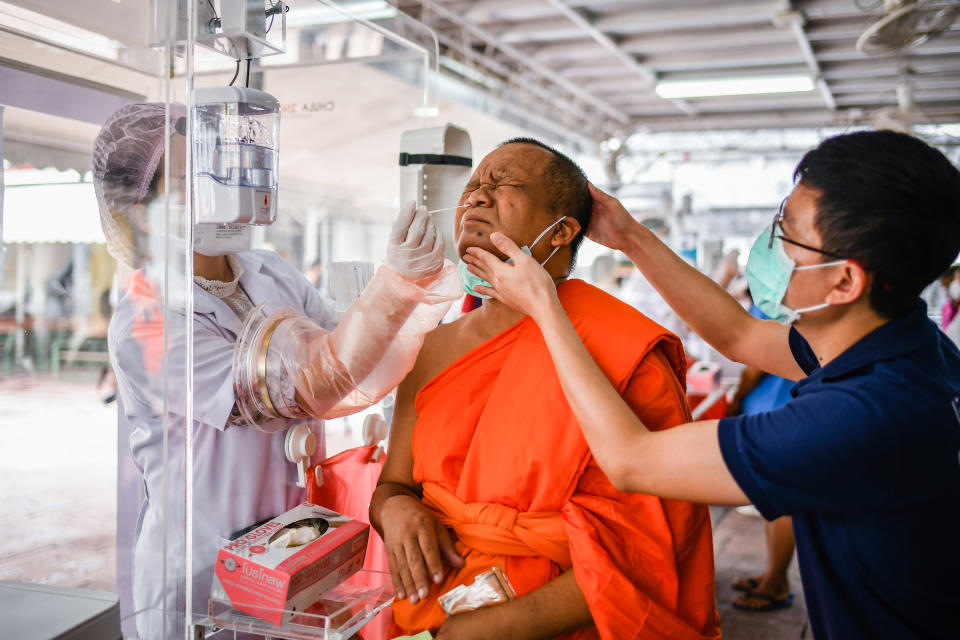
Gavi has previously been able to secure vaccines for a few dollars for low-income countries, compared to the price for sale in high-income countries. The HPV vaccine, for example, is $4.50 for Gavi, while richer countries pay at least $120, according to Deputy CEO Anuradha Gupta.
Nonetheless, “we have right now, a lot of countries working with the various manufacturers for supply for their country, but we need to overlay that approach with a global approach, so that most of the output is going to a rational system of allocating doses for those most at risk,” said Gates.
The United States in particular should have 100 million doses of a COVID-19 by the end of the year, Dr. Anthony Fauci, director of the National Institute of Allergy and Infectious Diseases, stated earlier in the week. "Then, by the beginning of 2021, we hope to have a couple hundred million doses,” he added.
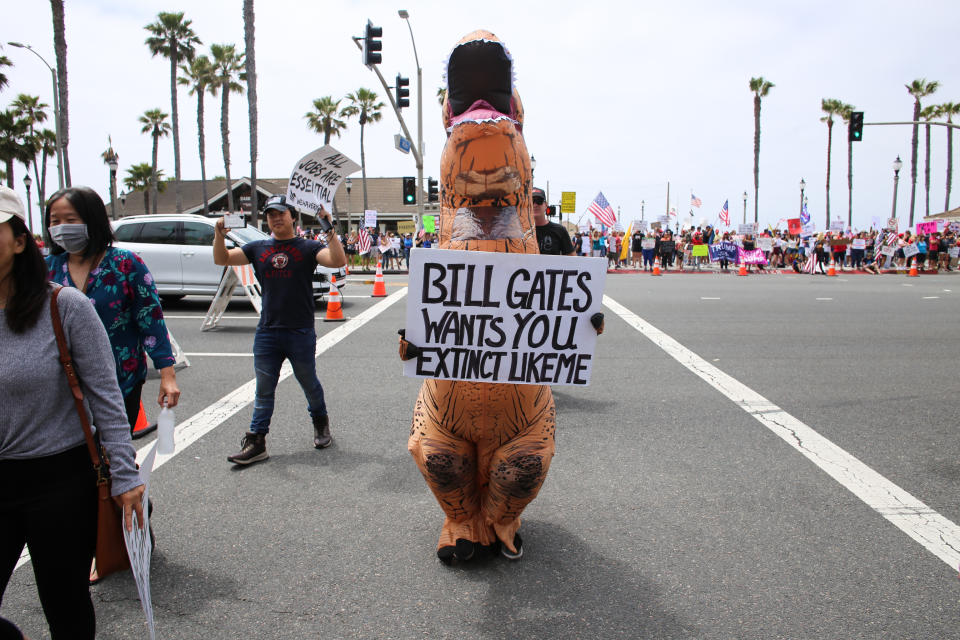
Conspiracy theories about microchips are ‘so bizarre’
Gates was also asked on the call to address comments about mistrust in his motives.
A recent Yahoo News/YouGov poll found that 44% of Republicans mistakenly believe that Gates is plotting to use a mass COVID-19 vaccination campaign as a pretext to implant microchips in billions of people, and to covertly monitor their movements. Only 26% of Republicans correctly identified the story as false.
“Those polls are a little bit concerning,” Gates said. “In a way it's so bizarre... And it's almost hard to deny this stuff because it's so stupid or strange that even repeating it almost seems to give it a credibility.”
—
Aarthi Swaminathan is a reporter for Yahoo Finance. Follow her on Twitter @aarthiswami.
Anjalee Khemlani is a reporter at Yahoo Finance. Follow her on Twitter: @AnjKhem
Read more:
Coronavirus update: NY turns corner as COVID cases plummet to lowest since March
Bill Gates is spending 'billions' to ‘save months’ on a coronavirus vaccine
Bill Gates on coronavirus: We need an 'extreme shutdown' of 6 to 10 weeks
Read the latest financial and business news from Yahoo Finance
Follow Yahoo Finance on Twitter, Facebook, Instagram, Flipboard, SmartNews, LinkedIn,YouTube, and reddit.